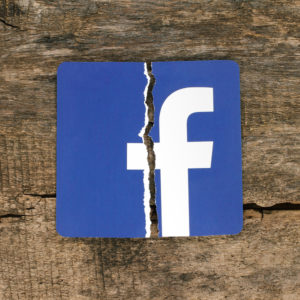Big Tech thinks politicians are “weaponizing” and “politicizing” antitrust law to address non-antitrust problems, according to members of the tech industry.
The Big Tech pushback comes as the Department of Justice, the Federal Trade Commission, and the House Judiciary Committee prepare to investigate Silicon Valley heavyweights like Amazon, Apple, Facebook and Google for antitrust violations and anticompetitive practices.
2020 presidential candidate Elizabeth Warren called for the break up of Big Tech in a March blog post, and last week put up a billboard in San Francisco repeating her call. President Donald Trump threatened to take antitrust action against several Big Tech companies last year.
“A lot of the conversation has skimmed on issues that aren’t really antitrust issues,” a source in the tech industry told InsideSources. “If you look at the competitive landscape, Warren’s plan focuses on a lot of that, but the fundamentals of her plan didn’t really have a grasp on the tech landscape. The very fact she was able to use a billboard shows there is choice in the marketplace. More than 94 percent of advertising happens off Facebook. The fact she chose billboards underscores the choice in advertising.”
Industry members, lobbyists, some economists and tech experts argue that some of the most noticeable problems with Big Tech — like privacy and censorship issues — are not antitrust-related.
Carl Shapiro, who served as the Deputy Assistant Attorney General for Economics in the antitrust division of the DOJ under the Obama administration, takes this view. (The Obama administration is known for facilitating a cozy relationship with Silicon Valley, especially Google, and a revolving door between Obama administration officials and the Big Tech C-suite. Big Tech lobbying was at an all-time high during the Obama administration as well.)
“The role of antitrust in promoting competition could well be undermined if antitrust is called upon or expected to address problems not directly relating to competition,” Shapiro wrote in a 2018 study examining the relationship between antitrust fervor and populism. “Most notably, antitrust institutions are poorly suited to address problems associated with the excessive political power of large corporations.”
Shapiro said that doesn’t mean there aren’t serious problems with Big Tech.
“Let me be clear: the corrupting power of money in politics in the United States is perhaps the gravest threat facing democracy in America,” he wrote. “But this profound threat to democracy and to equality of opportunity is far better addressed through campaign finance reform, increased transparency and anti-corruption rules than by antitrust.”
Antitrust law solely focuses on competition and consumer welfare. According to one source in the tech industry, competition is robust because companies like Facebook and Google give consumers the services they want for free and provide a rich advertising landscape for advertisers.
Not everyone in the tech industry agrees on this point: companies like Yelp and Oracle criticize Google in particular for manipulating regulatory policy to benefit itself and ripping off software developers. Even politicians say consumers aren’t really getting what they want from social media companies, especially when they enforce takedown policies inconsistently.
Economists also argue that even though many Big Tech services — like a social media or Gmail account — don’t require a monetary price for activation, consumers still pay with their personal data, which Big Tech then uses in compromising ways.
Big Tech insists it makes no sense to break up companies when they’re giving consumers and advertisers what they want. When Facebook acquired Instagram, the merger helped Facebook improve its mobile presence and monetize Instagram, though it also gave Facebook more market power and more personal data to share with third-party advertisers. From Big Tech’s perspective, that was a win-win.
Even if regulators and lawmakers do find antitrust violations in Big Tech, the industry thinks breaking up the top companies won’t benefit consumers.
“Break up is an extreme remedy,” a source within the tech industry told InsideSources. “There are other ways [to enforce antitrust violations] — for example Google has been fined a couple times in Europe for antitrust violations. There are other remedies that are not structural but monetary.”

